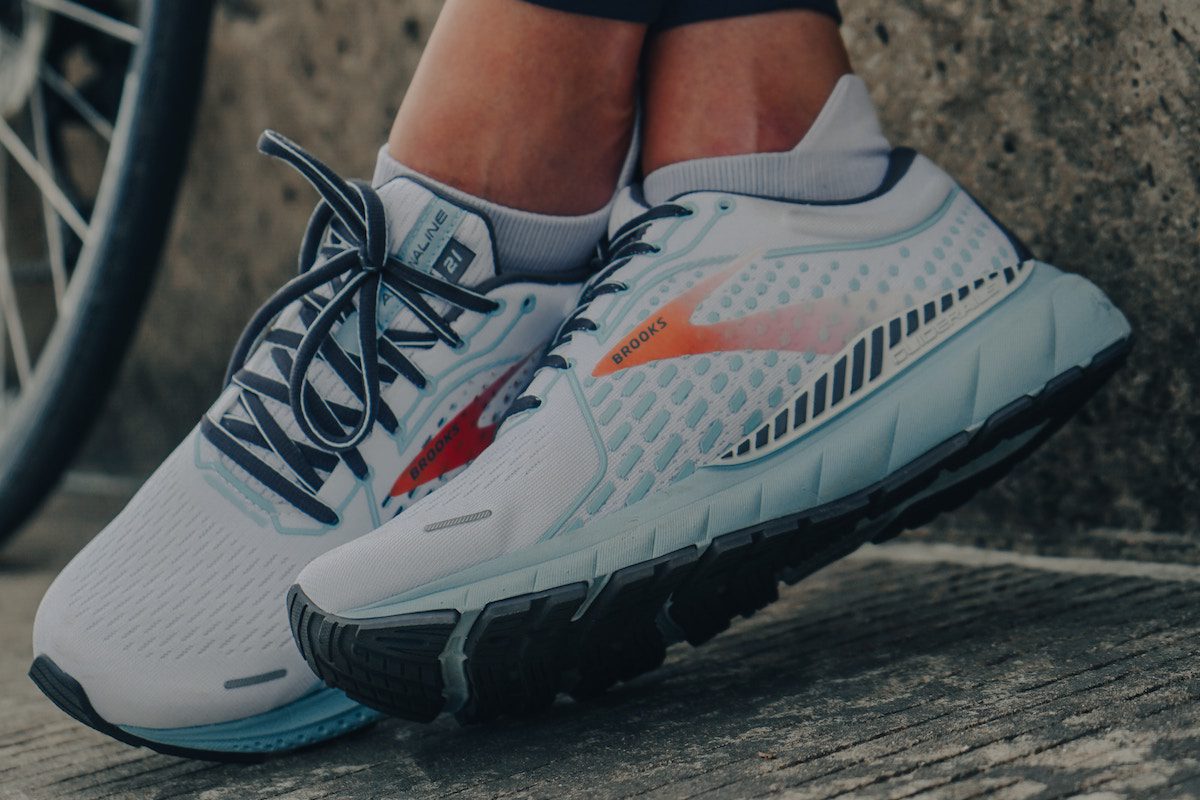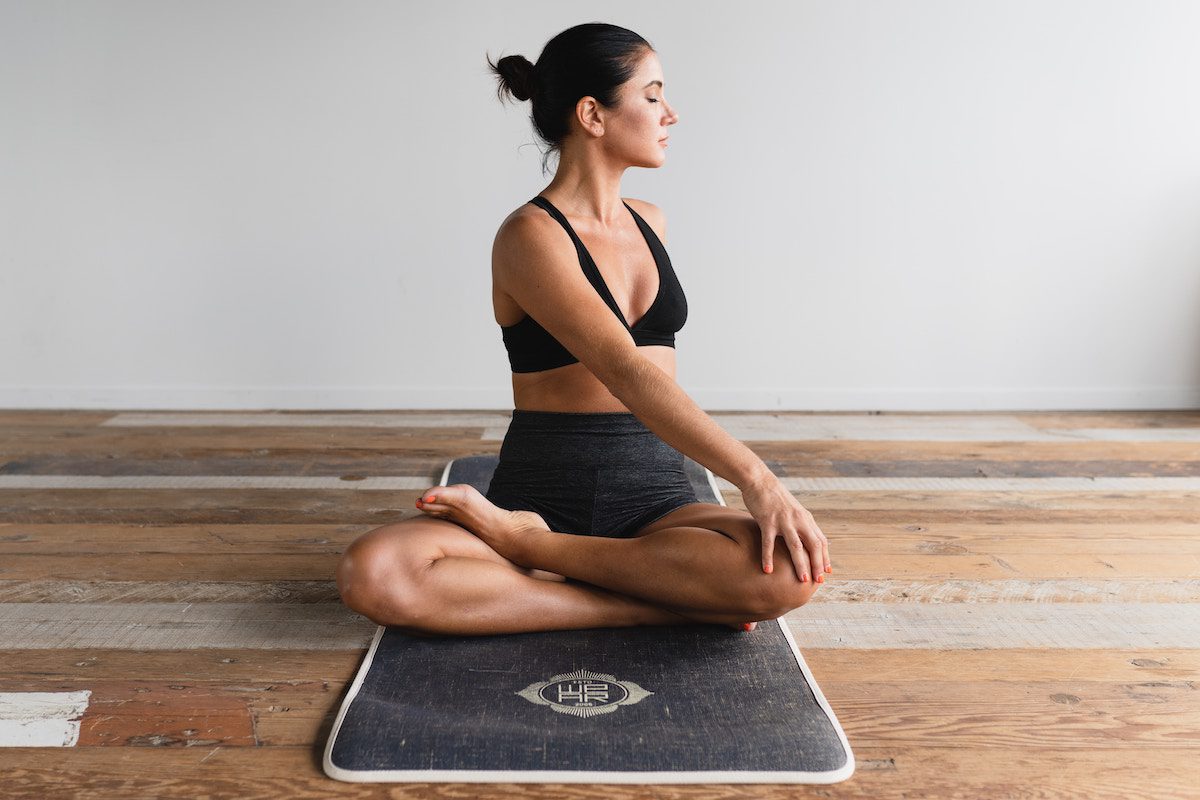Setting Yourself up for Sleep Success – Even in Uncertain Times
I’m staring at the ceiling. Again. I want to look at my phone, but I already know what time it’s going to say: “4 am,” it will taunt me. It’s the witching hour for my overactive brain, especially if I’m not taking care of myself: stress, avoiding something, not taking care of my body’s mobility needs—my disturbed sleep knows no wellness bounds.
Sleep aids in recovery and recovery aids in sleep. Ignore one at the detriment of the other.
For months leading up to the shelter-in-place orders, I was on this frustrating 4 am cycle. Waking up, begging my brain to shut up, turning on The Office on my phone (hidden deeply under the covers with my AirPods nestled uncomfortably in my ears) and finding a better-than-nothing version of sleep until I needed to get up.

As events were cancelled and businesses shuttered, I felt the impending stress of the unknown. What would the future hold? When would the future be, well, the present?
Sleep advice from Team USA’s sports chiropractor
Dr. R Alexandra Duma, DC, DACBSP, a Team USA sports chiropractor who practices out of FICS – a high-tech fitness recovery and wellness facility in New York City – saw this same wave of uncertainty in her athletes.
“I was with the fencing team in Europe in the beginning of March and actually that was the last competition that they were able to compete at,” she said. “Seeing how concerned they were already before they knew what was going to happen – it took a lot of emotional toll.”
But athletes are trained to roll with the punches (sometimes literally) and adjust their plan to the actual game ahead of them, Duma said.
“These athletes are able to understand, ‘OK I’ve worked as hard as I’m able to work, but this is not something I can control and all I can do is continue my good habits and my good routines,’” she said.
The good routines she’s referencing? The same things that can help you recover from a tough training routine, and can help you achieve sleep success.
For recovery, Dr. Duma recommends:
- Do a daily practice of stretching, yoga, or breathing exercises
- Focus on myofascial release, using your foam roller or percussion devices like a Theragun
- Take a warm epsom salt bath for relaxation and recovery
- Take a cold bath for reducing inflammation
- Massage with quarantine partner
- Wear compression clothing
How an RD recommends adjusting your routine for sleep success
DJ Blatner is an American Registered Dietitian, television and media personality, and published author of the books The Flexitarian Diet and The Superfood Swap. She was also the RD to the Cubs for 10 years and worked closely with the team during the 2019 season to get the team into better sleep routines.
Blatner recommends doing a list of five things to give you the sleep succes you need.
Shut off your phone, computer and TV before bed. “Stop using them one hour before bed or use blue light blocking glasses,” she said. I just pulled the trigger on these blue-light blocking glasses from Felix Gray given her recommendation. I had to.
Have a tart cherry shot post-game (we’ll apply this to post-workout). It will help with muscle soreness and sleep. According to the USA Triathlon team, “The functional compounds in tart cherry have been shown to be both antioxidants (that fight the oxidative stress caused by strenuous training) and anti-inflammatories. For the athlete, this means an accelerated return of muscle function and less muscle soreness following training and racing. There is also evidence to show that tart cherries contain melatonin, which provide the added benefit of improving sleep efficiency, a good index of sleep quality. Combined, these benefits make it a recovery powerhouse, in fruit form.”
Drink less water at night. Too much water before bed can wake you up. “Drink more in the morning and a little less at night,” Blatner recommends.
Wear an eye mask and ear plugs. “Blocking light and sound can improve sleep, decrease the stress hormone cortisol, and increase the sleep hormone melatonin.” There is a body of research on this, Blatner says. According to one study, “the use of earplugs and eye masks resulted in more REM time, shorter REM latency, less arousal and elevated melatonin levels.”
Listen to a sleep meditation. Blatner recommends Insight Timer. I’ve successfully used the sleep stories in the Calm app to ease myself to sleep.
And if I’m not taking care of my body and managing my stress, slowly but surely my shoulders creep into my ears and tension builds in my neck, inevitably leading to migraines that keep me awake. Your body and the pain it may feel can keep you tossing and turning instead of slipping easily into a deep sleep.
And if you were previously injured, you may have to work a little harder to keep injury and pain at bay. Dr. Duma recommends a few practices to keep old injuries from flaring up, but wanted to stress one key point: “My number one advice is to try to prevent sitting continuously,” she said. “Try to get up every 30 to 60 minutes.”
Her other advice should be laminated with the title “gospel”:
- Warm up every time you exercise – even for 10 minutes can reduce injury by 80 percent
- Do exercises for mobility and flexibility. “The biggest mistakes are skipping the stretch, the cooldown, the stability and the mobility,” Dr. Duma said.
- Listen to your body and your inner coach to know your limits, and what you need.
- Use common sense – don’t try things you haven’t attempted before.
As you enter another week of running outside, doing workouts via LIVE or Zoom, add recovery and sleep success to the top of your priorities list. You’ll feel better in every area of your life.












